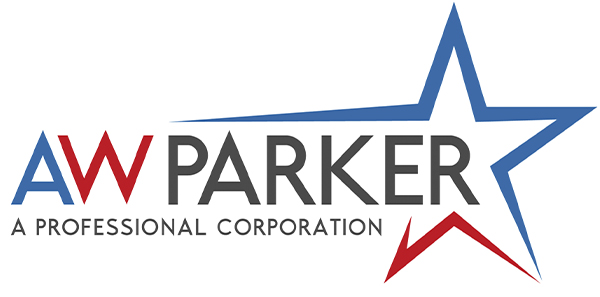CONTACT US
Enter your Name, Email Address and a short message. We'll respond to you as soon as possible.


Wes Parker, EA
AW Parker, P.C.
Forum III Building
1770 Kirby Parkway, Suite 117
Germantown, TN 38138
Phone: 901-794-3528
Fax: 901-794-8354
Email: wes@wesparkeronline.com

Because of an annual inflation rate that soared higher than any time since 1981, a number of tax features that are indexed to inflation will change in 2023. These increases affect everything from retirement and estate planning to personal and corporate income tax brackets. We’ll mention a few of them along with some of the more common tax features, while you can find further details throughout this booklet.
Social Security and Supplemental Security Income (SSI) benefits for approximately 70 million Americans will increase 8.7 % in 2023. The average Social Security payment will increase $140 per month. In addition, while not a tax, the monthly premium for Medicare Part B enrollees drops to $164.90 in 2023, a decrease of $5.20, while the annual deductible will also fall slightly.
The bad news?
The maximum amount of earnings subject to the Social Security tax will also increase. See page 11 for the details.
While you can see the details on the following pages, a few of the highlights for tax year 2023 include an $1,800 increase in the standard deduction to $27,700, an increase in all marginal tax brackets (where rates remain the same) and a bump up in the foreign earned income exclusion to $120,000 from $112,000 in 2022.
Also, the federal estate tax exclusion amount of $12,920,000 is up from $12,060,000 in 2022, while the annual exclusion for gifts rises to $17,000 for calendar year 2023, up from $16,000 for calendar year 2022.
Tax credits include up to:
Limits apply on the suggested retail price of the vehicle and the adjusted gross income (AGI) of buyers. For single or married taxpayers filing separately, the AGI limit is $150,000. Heads of household have a $225,000 limit, and taxpayers who are married filing jointly and surviving spouses have a $300,000 AGI limit. Used vehicle buyers receive a tax credit based on smaller income limits.
These new tax credits are generally available only for qualifying electric vehicles whose final assembly occurred in North America and purchased after August 16, 2022. Different rules apply for clean vehicle purchases, typically for plug-in vehicles, made before this date. You can learn if your purchase qualifies for the new credit by searching for manufacturing sites using the vehicle identification number (VIN) at www.nhtsa.gov/vin-decoder.
Starting in 2024, the Inflation Reduction Act will allow dealers to directly reduce the purchase price of a vehicle by the amount of the buyer tax credit, making buying a clean vehicle easier for consumers.
Taxpayers may also receive extra time to file taxes in areas affected by Hurricanes Ian and Fiona and other storm conditions across the nation in 2022. If you live in an area affected by natural disaster, talk to your tax professional to learn if you qualified for a penalty-free extension to file.
You can avoid triggering the wash sale rules while maintaining the same portfolio allocations by selling the security and waiting at least 31 days before repurchasing it or selling the security and buying shares in a mutual fund that holds similar securities.
Currently, the wash sale rules don’t apply to digital assets, including cryptocurrency. But that could change in the future.
You will also owe an extra 0.9% for the Additional Medicare Tax if you earned more than $200,000 in a calendar year, regardless of filing status. Employers are typically responsible for withholding the extra tax.
With COVID-era rules expiring, watch for states that tax income to the employer’s office location and not the state where you work from home. Talk to your tax professional to learn if you are affected.
Previously, Form 1099-K was issued for third party payment network transactions only if the total number of transactions exceeded 200 for the year and the aggregate amount of these transactions exceeded $20,000. Now a single transaction exceeding $600 in 2023 can trigger a 1099-K.
Earnings from part-time work, side jobs and the sale of goods, is still taxable and must be reported as income unless it is excluded by law.
Enter your Name, Email Address and a short message. We'll respond to you as soon as possible.
AW Parker, P.C. and LTM Marketing Solutions, LLC are unrelated companies. This guide was created by LTM Marketing Solutions, LLC and was not written or created by the named financial professional and does not necessarily represent the views and opinions of Cetera Wealth Services, LLC.
Securities offered through Cetera Wealth Services, LLC, member FINRA/SIPC. Advisory Services offered through Cetera Investment Advisers LLC, a Registered Investment Adviser. Cetera is under separate ownership from any other named entity.
The information and opinions contained in this web site are obtained from sources believed to be reliable, but their accuracy cannot be guaranteed. The publishers assume no responsibility for errors and omissions or for any damages resulting from the use of the published information. This web site is published with the understanding that it does not render legal, accounting, financial, or other professional advice. Whole or partial reproduction of this web site is forbidden without the written permission of the publisher.